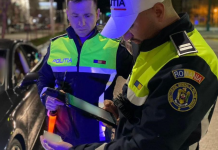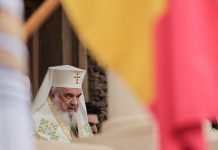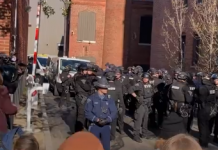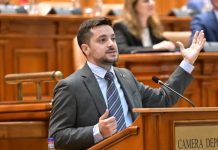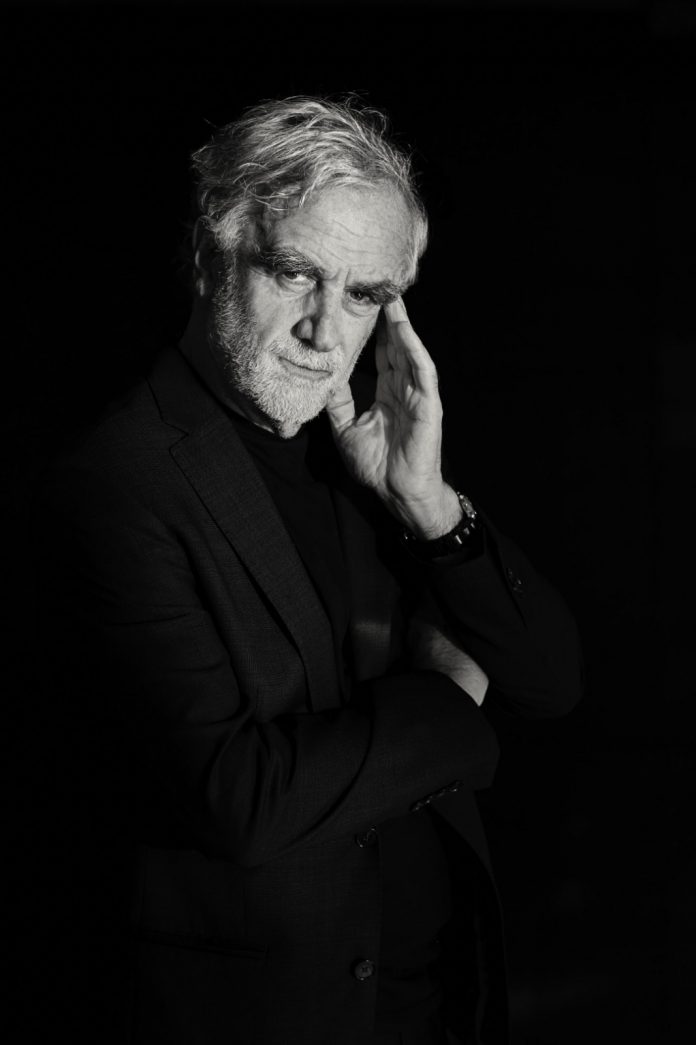In an interview with Universul, renowned international prosecutor Luis Moreno Ocampo on accused Azerbaijan of “genocide” against ethnic Armenians in the Nagorno-Karabakh region and demanded intervention by world powers. A new special report by Ocampo warns that within weeks Armenians in the disputed enclave will be dying of starvation.
“Democracies should not be complicit in genocide,” Ocampo, who was the first chief prosecutor of the International Criminal Court, said in the interview on Wednesday.
Nagorno-Karabakh (known to Armenians as Artsakh) is formally within the territory of Azerbaijan, but has operated as a self-governing entity since Armenia and Azerbaijan, both former Soviet republics, became independent states after the collapse of the Soviet Union. Azerbaijan regained control of much of it – but not the core – in a 2020 war in which thousands were killed, mainly on the Armenian side. Talks aimed at reaching a solution putter on under US and EU aegis, while Russia, erstwhile patron of both countries and supplier of peacekeepers after the 2020 war, is indirectly involved as well.
Since December 12, 2022, Azerbaijani troops have been blocking the main road to the enclave, known as the Lachin Corridor, and since June 15 the blockade has become total. Critics see this as a ploy to compel the departure of the 120,000 ethnic Armenians now besieged in the enclave.
Ocampo said that the situation in fact is more severe than a humanitarian crisis or ethnic cleansing and veritably constitutes “genocide” under Article II(c) of the widely-accepted Genocide Convention, which determines that “deliberately inflicting on the group conditions of life calculated to bring about its physical destruction” constituted genocide.
Ocampo said in the interview that there is a “reluctance of the US politicians to accept a genocide because they know that if there’s a genocide they have to act. Rwanda is the biggest example: the US refused to use the word ‘genocide’ to avoid being involved. So, That’s a classic problem.”
“This should not happen to the Biden Administration. They are ignoring a genocide,” he said. “They can have any opinion, but the law is very clear.”
Ocampo’s pro bono report, issued Aug. 8, addresses the question of definitions: “You will find no crematoria in Artsakh, nor machetes, but genocide by starvation is no less devastating for being silent. It was the same deadly method used against Armenians in 1915, against Poles and Jews in 1939, and against the people of Srebrenica in 1993. And unless we intervene right now, we’ll have a genocide on our hands by year’s end.”
The report (read it here), entitled “Genocide against Armenians in 2023,” urges world action: “The U.S., Russia, members of the European Union, all state parties of the Genocide Convention, and UN members have a rare historic opportunity to stop genocide against an Armenian group in 2023.”
“Without immediate dramatic change, this group of Armenians will be destroyed in a few weeks,” Ocampo wrote in the pro bono report.
In the interview, Ocampo noted drily that Aliyev has stated recently that “geopolitics are on Azerbaijan’s side” – an allusion to leverage Baku may have due to the country’s considerable oil and natural gas reserves.
The report has been delivered to the President of Nagorno-Karabakh, Arayik Harutyunyan, to Armenia’s Ambassador to the United Nations Mher Margaryan, and to the Armenian Foreign Ministry in Yerevan.
Ocampo is not the first to caution about the danger to the population in the enclave. A recent ruling by the International Court of Justice that found “a real and imminent risk” to the “health and life” of the Armenians in the enclave. The court ordered Azerbaijan “to ensure unimpeded movement of persons, vehicles, and cargo along the Lachin Corridor in both directions” – which Baku has ignored.
On July 31, Ocampo wrote to Azerbaijan’s authoritarian president, Ilham Aliyev, demanding explanations about his intentions and cautioning that his behavior could be investigated as a genocide. He did not receive a reply.
Ocampo believes Aliyev should be investigated by the ICC, which would require the United Nations Security Council to refer the case – but that the priority now is to prevent the physical elimination of the Armenians of Nagorno-Karabakh.
Ocampo began his legendary career by helping to liberate his native Argentina from military dictatorship. During his time at the ICC, in 2008, he obtained arrest warrants against Sudan’s then-President Omar al-Bashir for genocide, crimes against humanity and war crimes in Darfur. Bashir was deposed and is in jail in Khartoum.
Azerbaijan accuses Nagorno-Karabakh of separatism and Armenia of irredentism toward sovereign Azerbaijani territory, and demands that the ethnic Armenians in the enclave accept a future as a minority within Azerbaijan. The Armenians charge that repeated abuses against them – killings, aggressive statements, and the desecration of Armenian heritage sites in the area – belie any notion of good faith by Aliyev.
The messy situation in Nagorno-Karabakh is a typical outcome of the manner in which the Soviet Union handled its internal borders, deploying cartography as a tool of politics. Borders and sometimes people were shifted around for various reasons – to create mayhem, or as favors – and the result is a jumble of ethnicities.
This has led to conflicts in Moldova (where ethnic Slavs in the Trans-Dniester region are “stuck” inside a Romanian-speaking country), in Georgia (where Russians live in several regions) and most recently, and spectacularly, in Ukraine (parts of which are Russian-speaking. Baltic nations face tensions with Russian minorities as well.


